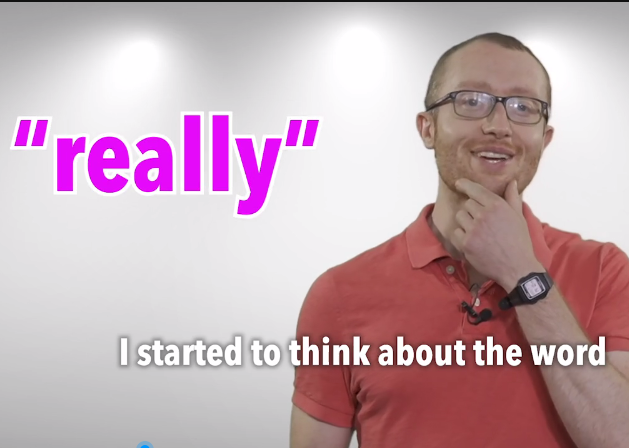This is Everyday Grammar. I'm John Russell.
这里是《每日语法》节目。我是约翰·罗素。
I recently visited Hollywood.
我最近去参观了好莱坞。
I went to a movie premiere and saw lots of really cool people.
我去看电影首映,看到了很多非常酷的人。
I started to think about the word "really".
我开始思考“真的”这个词。
English speakers use it all the time.
英语母语者总是在用这个词。
It's an adverb that you should know.
这是个你应该了解的副词。
"Really" is an amplifier - it makes adjectives stronger.
“真的”有加强作用——它使形容词更加强烈。
Let's look at an example.
让我们看个例子。
"Cool" is an adjective. It describes a person.
“酷”是一个形容词,用来形容人。
He is a cool guy.
他很酷。
But what if cool is not strong enough to describe the person?
但是如果酷不足以描述这个人怎么办?
You could say that guy is really cool.
你可以说,那个人真的非常酷。

Sometimes English speakers say the word "really" more forcefully.
有时候英语母语者会语气强烈地说“真的”这个词。
In other words, they emphasize it.
也就是说,他们会强调这个词。
When they do this, they are just drawing more attention to how strongly they feel about the adjective.
当他们这么说的时候,他们只是希望别人注意到他对这个形容词的感受有多强烈。
Let's listen to the difference.
让我们听听其中的区别。
She is a really talented actress.
她真是个有天赋的演员。
She is a really talented actress.
她真的是一个极有天赋的演员。
They are really kind people.
他们真是好人。
They are really kind people.
他们真是大好人啊。
The next time you watch an American film or listen to Americans speak, try to find examples of the word "really".
下次你看美国电影或听美国人说话时,可以试着找一找“真的”这个单词的使用场景。
Ask yourself which adjectives they use with "really".
思考一下,他们用“真的”搭配哪些形容词。
With time and practice, you will be really good at using the word "really".
加以时日多练习,你会非常熟练地使用“真的”这个词。
And that's Everyday Grammar.
以上就是今天的《每日语法》。











